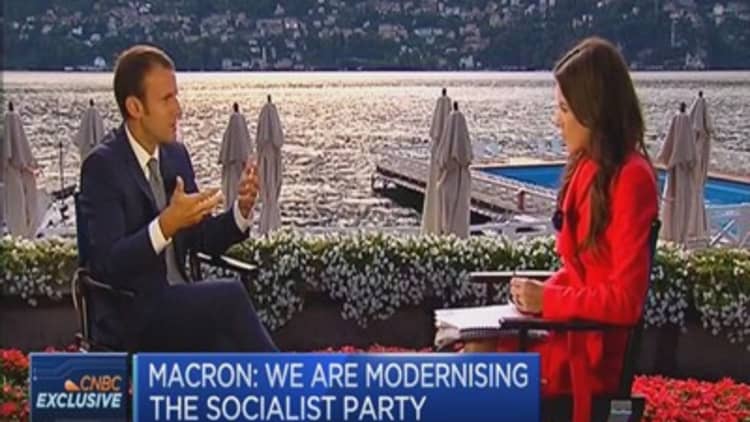


Countries across the globe are failing to grasp opportunities to reduce the wage gap between rich and poor while maintaining growth, according to findings from the World Economic Forum (WEF).
In a report issued Monday, the Swiss nonprofit foundation, said that every countries had room to cut income inequality. WEF added that it was possible to promote economic growth and inclusiveness simultaneously—a highly contentious point among economists and policymakers.
"There are huge debates about inequality around the world. Even coming out of the crisis in 2008, the G-20 leaders identified that they needed—we all needed—a more inclusive version of growth," Richard Samans, a member of WEF's managing board, told CNBC on Monday.
WEF based its first "Inclusive growth and development report" on data from 112 countries covering education, employment, entrepreneurship, financial systems, corruption, basic services and infrastructure and taxation.
"The current debate on inequality is unduly narrow and polemical," said WEF in a news release accompanying its report.
"The debate usually focuses on redistribution and upskilling labor, but these are only a minority of the policy options available to 'structurally adjust' an economy for inclusive growth. Several other crucial factors relate to improving the investment and business climate. Therefore, it is possible, even necessary, to be pro-labor and pro-business; pro-growth as well as pro-equity."
Among advanced economies, the Nordic countries, Switzerland, New Zealand and Canada score high for economic equality, while the U.S. and France "fall short in many areas," despite their differing political set-ups, according to WEF.
Although the U.S. scored well for fostering new business creation and entrepreneurship, the country suffers high and rising levels of both poverty and income inequality, according to WEF. The body suggested the U.S. could boost the number of women in the workplace by supporting affordable childcare and paid parental leave.
"The U.S. scores below its peers in a variety of areas," Samans told CNBC on Monday.
"For example, the low pay rate, basically, the proportion of the workforce earnings less than two-thirds of the median wage is very high in the United States."
In France, unemployment, particularly among young people, remains high and the tax system is "highly distortionary… putting the brakes on growth" said WEF.
The French economy posted zero growth in the second quarter of 2015, having grown 0.7 percent between January and March. Unemployment was steady at 10.3 percent in the second quarter, decreasing among those younger than 50 years old and rising for those older.
By comparison, the U.S. economy expanded by an annualized 3.7 percent between April and June, with the unemployment rate down at 5.1 percent in August.
—By CNBC's Katy Barnato. Follow her @KatyBarnato.


